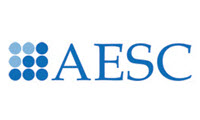Insights from Director, Kevin Jenkins
As part of Hobson Leavy’s role as a Foundation Partner of Chapter Zero, we have spoken to several leading New Zealand directors, seeking their insights and thoughts on the climate challenge, through their experiences in the boardroom.
Interested in some of the biggest challenges facing our non-executive directors, we wanted to know what impact climate change is having on the business strategies within their portfolio, and what changes are in motion as a response.
Competing priorities are a familiar challenge for non-executive directors, but how are they balancing these priorities and putting in place tools to keep pace with the climate challenge?
Hobson Leavy discussed the climate challenge with Director, Kevin Jenkins who said climate is being taken seriously by all the boards he sits on. Through our discussion, Kevin responded through the lens of his role on the board of urban development consultancy Harrison Grierson.
Clients are key and the reality of climate change is changing the way Harrison Grierson operates and does business
Harrison Grierson’s core services include urban development (planning, civil engineering and surveying), along with urban design, landscape architecture, transport, three waters, structural engineering and digital services, with clients who are concerned about the impacts of climate change and expect the firm to meet their needs.
Kevin confirmed Harrison Grierson’s clients are considering ‘ever more stringent regulations, such as flood hazard modelling’ and clients want to be associated with successful, resilient projects. Harrison Grierson must change the way they operate and do business to meet their client’s evolving needs in order to maintain momentum.
By the 2026 Financial Year (from 2020), Kevin confirmed the firm will have reduced its carbon footprint by 30% — and with their commitment to reductions aligned with science-based targets, and pursuing B-Corp certification — will illustrate Harrison Grierson’s commitment to changing how they do business.
He added the “board and CE are held accountable by employee shareholders for meeting these goals, aided by tools such as a decarbonisation dashboard and carbon budgets”.
Two major challenges stand out for Kevin at the board table:
- He noted that ‘keeping pace with emerging science and increasing frequency of severe weather events and how they relate to mitigation and adaptation’ is a key challenge in the boardroom. Following weather events such as Cyclone Gabrielle, businesses must continue to change how they operate to avoid the long-term environmental, social, and economic impacts demonstrated by devastation caused by the cyclone.
- Kevin also said the emerging concept of ‘nature in the boardroom’ is gaining momentum — the Aotearoa Circle confirmed it is time for nature to be considered at the board table as biodiversity loss and the associated economic impacts continue to grow.
Board structural changes are continuing as climate change increasingly becomes a full board responsibility
Kevin said all of his boards view climate change response as an issue that sits with the whole board. This might signal a positive shift from a response previously given to a dedicated board member or committee, toward an organisation-wide commitment.
Directors are expected to invest in their climate competency
Whilst organisations are supportive of professional development, Kevin said Directors must continually invest in themselves, to remain climate competent. Regular reviews of the skills that boards require is happening which shows a positive self-reflective approach to ensure organisations are equipped. Kevin said Harrison Grierson’s Chief Executive Karen West, has also appointed a Sustainability Lead at the executive level and a Sustainability Coordinator at a staff level to ensure the board-approved strategy maintains momentum. Kevin praised the IoD’s Climate Change Essentials course he undertook to upskill on the issue which is driving significant change.
Measurable climate related targets are finding their way into company strategy
Increasingly, climate targets are becoming part of company strategy and executive remuneration schemes to incentivise leadership to meet climate goals. There has been an increase in remuneration and incentivisation globally and whilst this shift is still in its infancy in New Zealand, particularly among executive’s long-term incentive schemes, Kevin confirmed Harrison Grierson’s FY25-27 strategy includes ESG targets, decarbonisation, and leadership gender balance targets. He also said a key part of achieving their decarbonisation targets was to reduce travel. Staff now have a real-time dashboard to assist their decision making. Surveys show that Harrison Grierson staff are big supporters of these policies.
Finally, Kevin noted “divergence amongst stakeholders about our climate change journey is also diminishing, to zero – our stakeholders know what is happening to our environment and expect the Board to drive change.” Boards are familiar with balancing short-term priorities caused by economic conditions — and the cyclical nature of this — yet climate change poses a relentless and unpredictable challenge that needs careful consideration to mitigate risk.
The takeaways:
- Clients are key for organisations to drive and maintain momentum to the climate change response – boards must respond and change the way their organisations operate to meet client’s evolving needs
- Two major challenges stand out:
- Boards must keep pace with emerging science & increasing frequency of severe weather events and how they relate to mitigation and adaptation
- Nature must have a “voice at the board table” to respond to increasing biodiversity loss and climate related impacts
- Climate change responses have increasingly become a full board responsibility, not solely left to a dedicated ‘expert’
- Directors are expected to invest in themselves and regular reviews of director skills are necessary to ensure sufficient climate competency
- Measurable climate targets and incentivising executives now find their way into company strategy to drive change
We would like to thank Kevin for his insightful commentary and insights into this important topic.
In addition to his role as Director of Harrison Grierson, Kevin is also a Director of WorkSafe New Zealand, and Chair of The Real Estate Institute of New Zealand (REINZ), and of the New Zealand Qualifications Authority (NZQA). He is a Chartered Member of the Institute of Directors.








